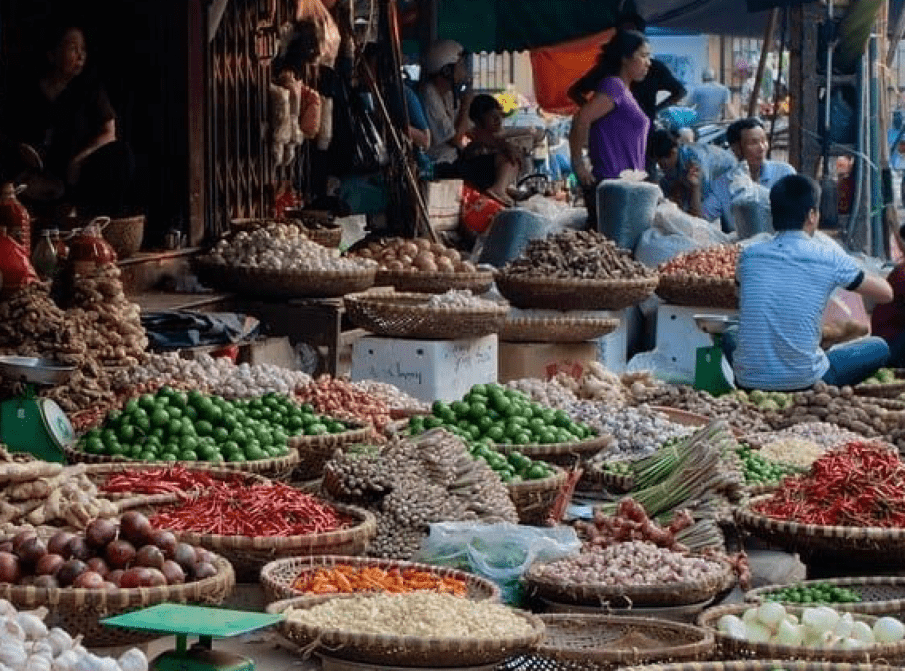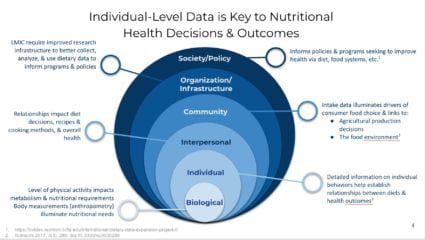
Reflections from the Classroom
April 24, 2019
Mobile Applications Working to End World Hunger
By Kelly Edwards, Kate Hildebrand, Indigo Miller, and Abbi Monssen
Kelly Edwards, Kate Hildebrand, Indigo Miller, and Abbi Monssen are putting their application building skills to the test in the GH804 mHealth class. The students are working as consultants for the Tufts University School of Nutrition Science and Policy to help design a mobile application that collects data for nutritional research.
Tufts’ International Nutrition Dietary Data Expansion Project (INDDEX) addresses a global deficiency of individual-level dietary data, which is needed to inform public health programs and policies seeking to address malnutrition. INDDEX’s solution is a web platform and mobile application for collecting and analyzing 24-hour dietary recall data. The application will be especially useful in low- and middle-income countries where a lack of infrastructure creates barriers to efficiently and cost effectively collecting complex individual-level dietary data.
Data Expansion Project (INDDEX) addresses a global deficiency of individual-level dietary data, which is needed to inform public health programs and policies seeking to address malnutrition. INDDEX’s solution is a web platform and mobile application for collecting and analyzing 24-hour dietary recall data. The application will be especially useful in low- and middle-income countries where a lack of infrastructure creates barriers to efficiently and cost effectively collecting complex individual-level dietary data.
The BUSPH team is developing four modules to supplement the core INDDEX dietary survey which will facilitate researchers in collecting socio-demographic, physical activity, anthropometry, and dietary supplement use data. The team kicked off the course by learning the application building basics of CommCare–an open source application development platform by Dimagi–which allowed the non-programmers of the group to deftly create a fully functioning application. To develop the modules, the team reviewed validated surveys, developed process maps charting the flow of questions, and then programmed the comprehensive questionnaires into a working CommCare application their classmates could help beta-test.
After the conclusion of this course, the INDDEX project will incorporate the supplementary modules into the dietary recall application, providing researchers with options to tailor the questionnaires to their specific research questions and context. Ultimately, the CommCare modules developed in the this course can have global impact by facilitating vital dietary research that provides evidence to support programs and policies that address food security, improve nutrition, promote sustainable agriculture, and end hunger.